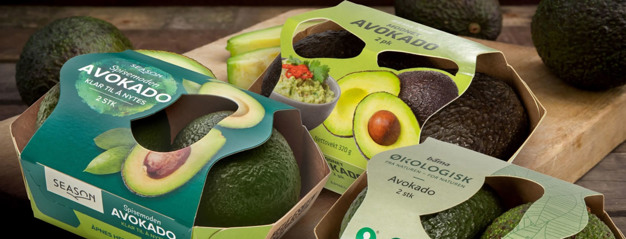Previously, the plastic tray of the avocado packaging had already been replaced by cardboard, but now that the plastic around it is also being replaced, the newest solution is completely plastic-free. Avocados are now in the shops in this new packaging.
Åse Øygarden, packaging director at Bama: “We have been working on this packaging for a long time. It is important to us that the new packaging offers the same shelf life and protection as the old one. ”
New and better solution
At Bama we always make sure that as little plastic as possible is used in the packaging, but as much as is necessary. That is why Øygarden is very satisfied with the new avocado packaging, which Bama Packaging has developed and patented: "Tests show that the packaging extends the shelf life of the avocados and thus prevents food waste." The packaging is made from renewable fibres from Scandinavian forests and is 100 percent recyclable.

Good packaging is important
Bama is often asked why avocados need packaging at all, but the answer is simple: Bama avocados have three maturity stages: edible, immediately ripe and hard. It is the edible avocados, packed in pairs, that we are talking about here: the softest ones that can take the least trauma. They need good packaging to prevent damage, as damage can lead to more food waste.
Bama is continuously working on sustainable production. Avocado cultivation takes a lot of water, which is why the Norwegian wholesaler works with growers who use as little water as possible, so that the water consumption is not at the expense of the local community.
Source: bama.no
